DELUGE OF CHAOS OP-ED
KZN floods exposed vulnerabilities in local structures and disaster response — South Africans should not forget
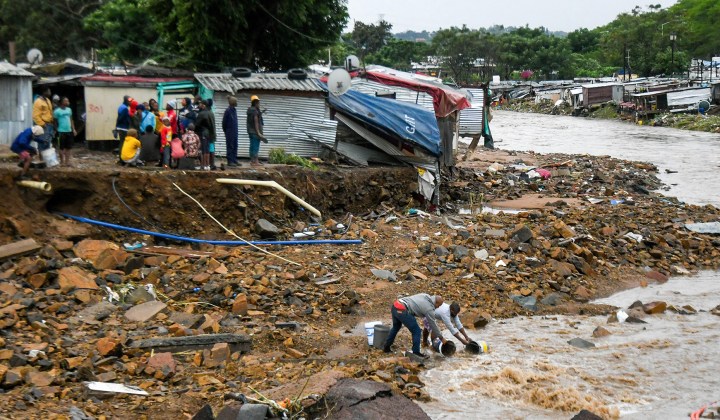
The KwaZulu-Natal floods in April took the lives of 443 people and left countless others displaced. Interviews conducted by SECTION27 in the aftermath revealed an inadequate disaster response system that resulted in many flood victims having to endure compromised access to education, healthcare and adequate shelter.
As the waters receded in the wake of the KwaZulu-Natal floods in April 2022, it exposed a lack of coordinated responses by local authorities which left the communities of eThekwini in a more vulnerable state than before the deluge.
The existing vulnerabilities are borne out by the finding that eThekwini has more informal settlements than any municipality in South Africa. Coupled with the observation that at least 164 of the 550 informal settlements are built on floodplains, it was a disaster by design for many. A total of 443 people lost their lives in the floods and countless others have been displaced.
SECTION27 interviewed 18 families, primarily from Ugu, Umlazi and Groutville, whose lives were uprooted by the floods, to assess the impact the floods had on access to basic education and healthcare, and to gain insight into the government’s response before, during and after the disaster.
While we would not suggest that the survey respondents are representative of all of those affected by the floods, the findings are notable and align with other evidence of impacts reported in the media.
Education and health
Across the board, we found that schooling was interrupted for at least two weeks, in some cases up to two months. Of those interviewed by SECTION27, 50% cited damaged roads as the primary reason their children could not get to school. While there were only a few instances of damage to school infrastructure in the survey, the Auditor-General of South Africa, in its first special report on flood relief funding, found that 356 schools in KwaZulu-Natal were damaged by the floods.
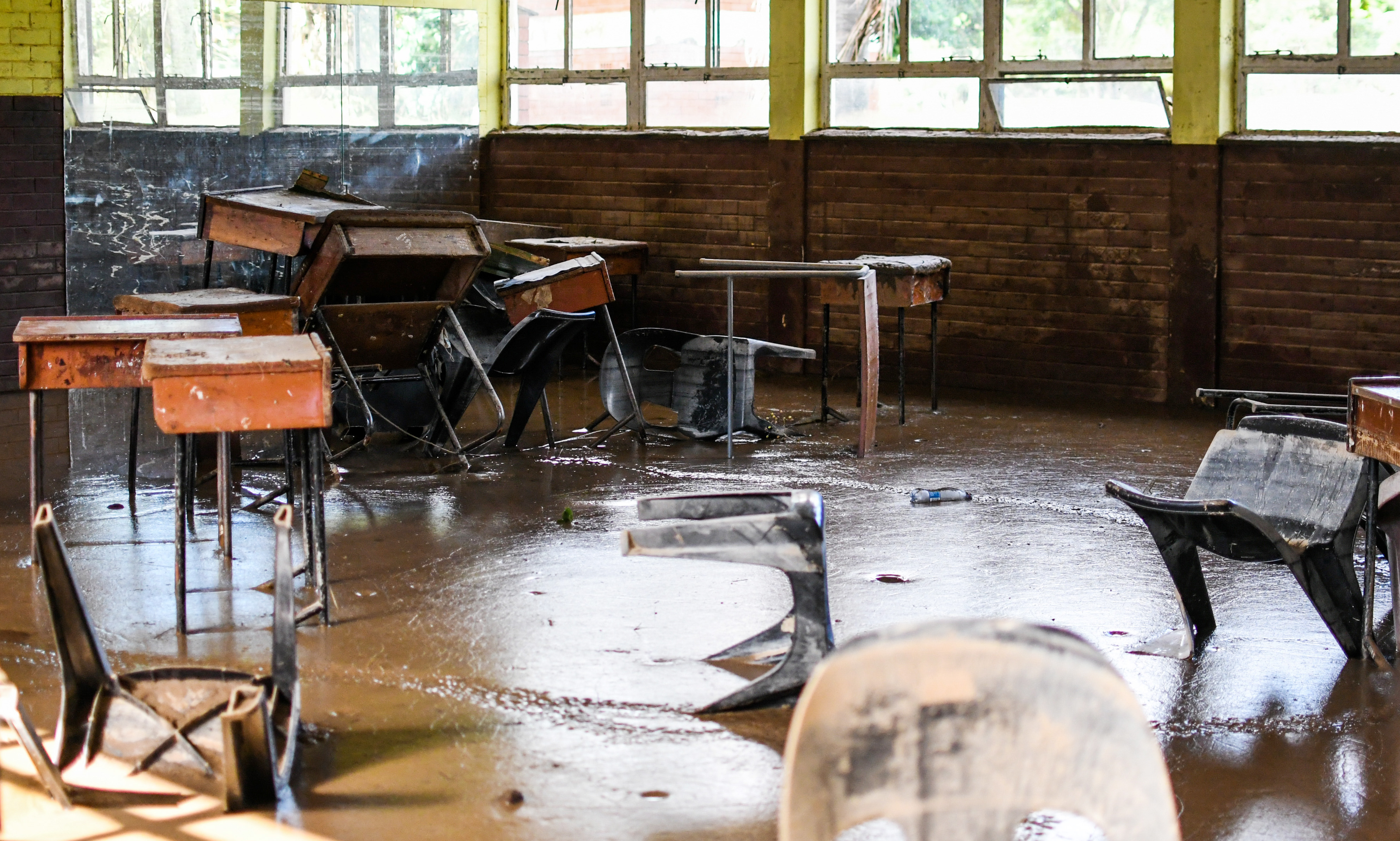
A muddy classroom during a visit to Durban by Minister of Basic Education Angie Motshekga on 19 April 2022. (Photo by Gallo Images / Darren Stewart)
Another reason the interviewed parents gave for not returning their children to school was that their uniforms had been washed away in the floods, a finding corroborated by the South African Human Rights Commission (SAHRC) in a briefing to Parliament in September 2022. In response, the Department of Social Development, through the South African Social Security Agency, spent about R3.2-million on 1,231 school uniforms (about R2,600 per uniform), according to a parliamentary report in November 2022. SECTION27 found that by July, 83% of the children of those interviewed had returned to school.
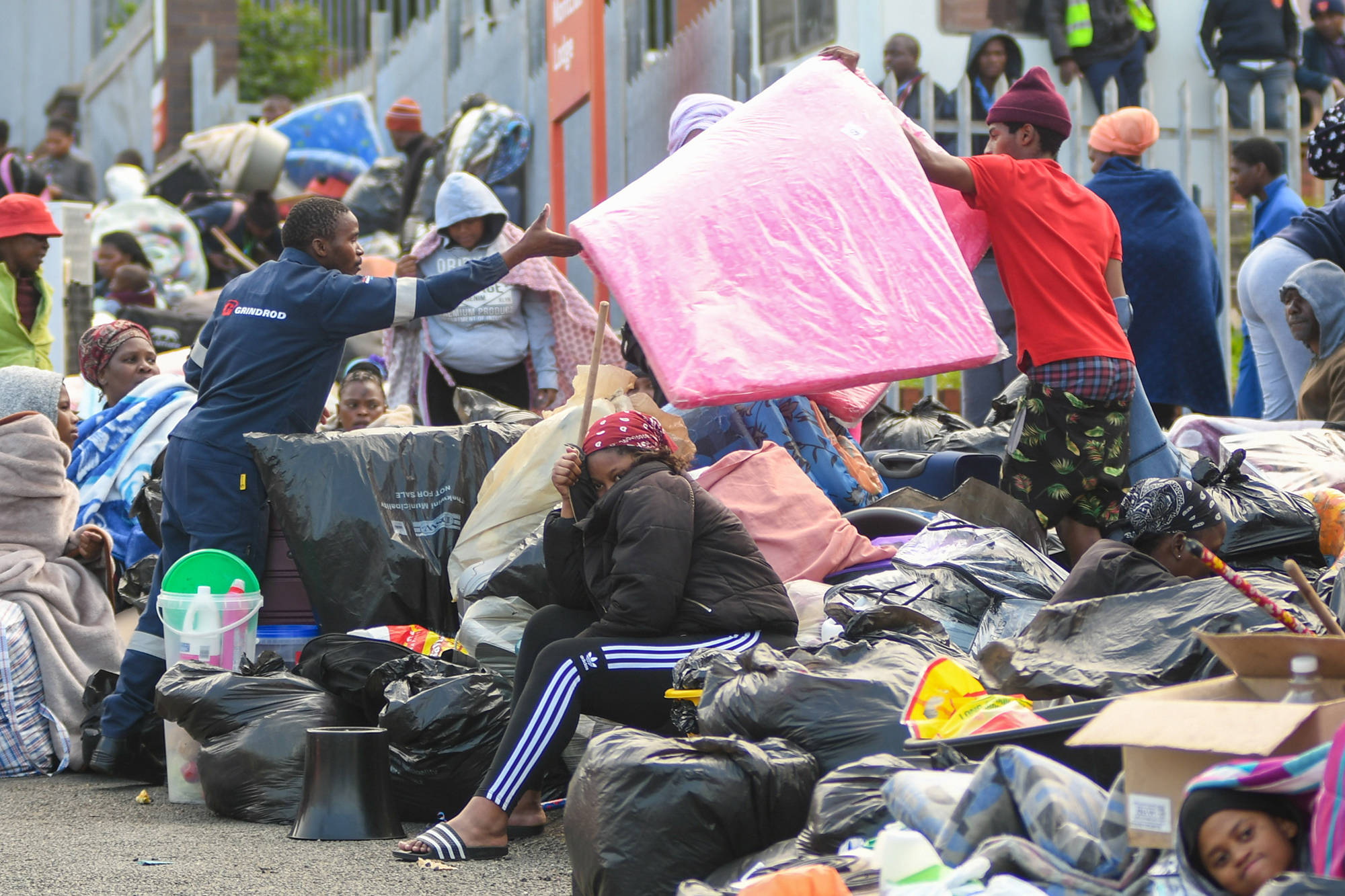
MontClair Lodge, Durban. Flood victims were living at the lodge after the KZN April 2022 deluge which left a trail of destruction and hundreds dead. (Photo: Gallo Images / Darren Stewart)
Access to healthcare was equally compromised. We found that 55% of the survey participants did not have access to any mental healthcare services, and feelings of helplessness, fear and great loss were expressed across the interviewed group. The Department of Social Development found that many children had been separated from their families and some had been exposed to sexual abuse in the shelters.
These impacts on health are compounded by the already dire state of the water and sanitation infrastructure in eThekwini, with about 80% of the city’s sewage plants dysfunctional.
The importance of safe and adequate temporary shelter
The displaced were put up in temporary shelters, mostly in halls, for three to four months after the floods. According to the Presidential Climate Commission briefing on the KZN floods in December 2022, “the Disaster Management and Emergency Control Unit reported that a total of 71 care centres have been established across multiple wards in townships, rural areas and informal settlements. As of 18 August 2022, these centres housed 5,811 people in community halls and churches.”
Ethekwini mayor Mxolisi Kaunda was quoted in November as saying that the “remaining 58 mass care centres which are accommodating 3,448 [people] will be cleared by December 15”.
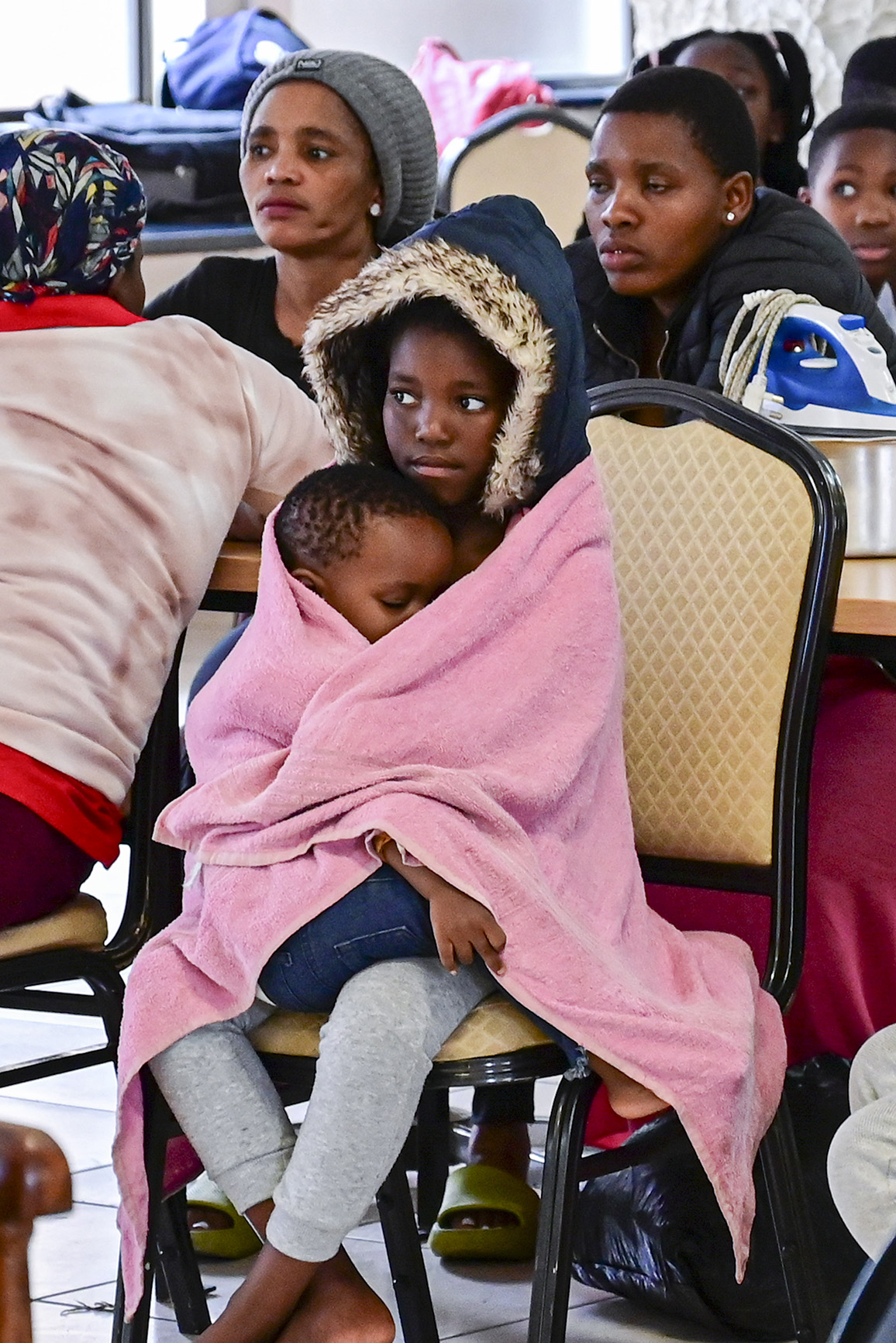
Children in the Astra building in Durban on 13 December 2022, which houses people displaced after the April floods. (Photo: Gallo Images / Darren Stewart)
While there is progress (and promises), the fact that flood victims had to live in inadequate conditions for up to seven months points to a blatant disregard for human rights. According to the SAHRC, in many of the affected areas there were not enough mattresses and basic living provisions, and no privacy or safety for the occupants.
However, temporary shelter is where a real difference could be made. For instance, the development of safe community centres that have suitable infrastructure for emergency situations — beds, toilets and showers, private spaces, healthcare and classrooms — will go a long way in stabilising a community until a permanent housing solution can be found. Especially so considering that permanent solutions are already hard to find, due to a lack of suitable land.
Visit Daily Maverick’s home page for more news, analysis and investigations
The quality of temporary shelter has a direct bearing on how quickly residents can recover and face other challenges. Repeated and lengthy displacement in insufficient and potentially dangerous conditions erodes the capacity for resilience, and a displaced and fractured community means there are heightened dangers to women and children, as well as increased risks to mental health.
One response to the floods by the Department of Human Settlements was to establish temporary residential units (TRUs) in an attempt to formalise temporary shelter away from the halls. TRUs have been described as comprising two equally sized adjacent rooms with electricity access in-house, which are to last for 10 years. Common ablution facilities are shared between 30 units.
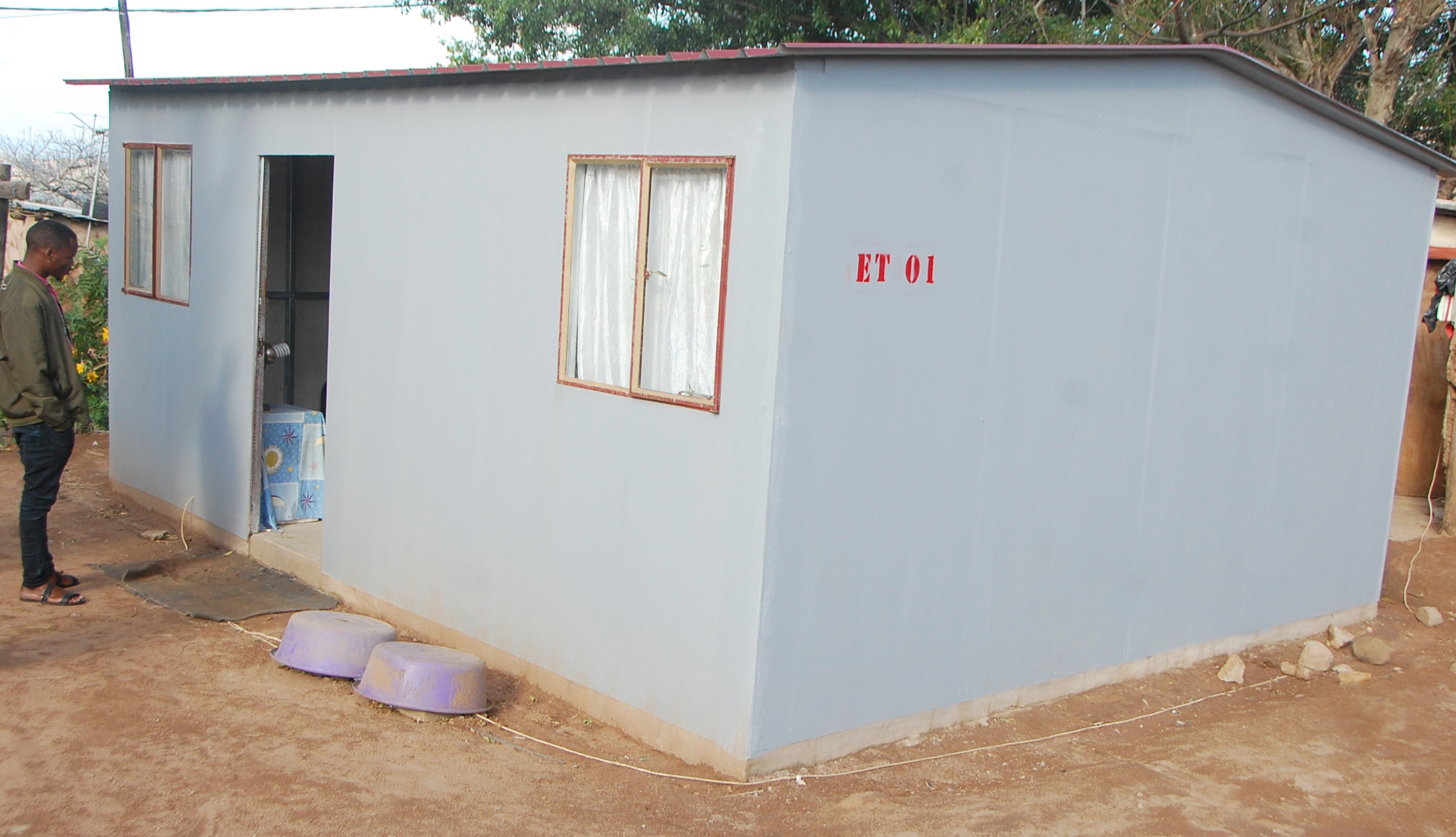
Temporary housing built for the Zondi family in Molweni. (Photo: Phumlani Thabethe)
The implementation of TRUs was met with resistance by some in eThekwini and KwaDukuza who believed that beneficiaries were jumping the queue, ahead of those in line for permanent housing. It was also found that temporary housing began to attract non-flood victims. When a disaster becomes an opportunity, it points to a disturbing level of neglect of people’s needs over a long period.
Shelter designs should not increase vulnerability to further natural hazards, according to the International Federation of Red Cross and Red Crescent Societies. However, the Auditor-General audited 30 of the TRUs and found all to be defective in one way or another.
The defects included poor waterproofing, resulting in holes in the roof and saturated wall panels in some cases. The audit also found that two of the mobile classroom units built at Brettenwood High School in Durban had to be evacuated due to heavy rains in May, because they were built on the same floodplain.
SECTION27’s interviews showed that 72% of the participants did not have to move from where they lived before the floods. While this means less displacement, it also speaks to the heightened vulnerability of being in the same flood-prone location.
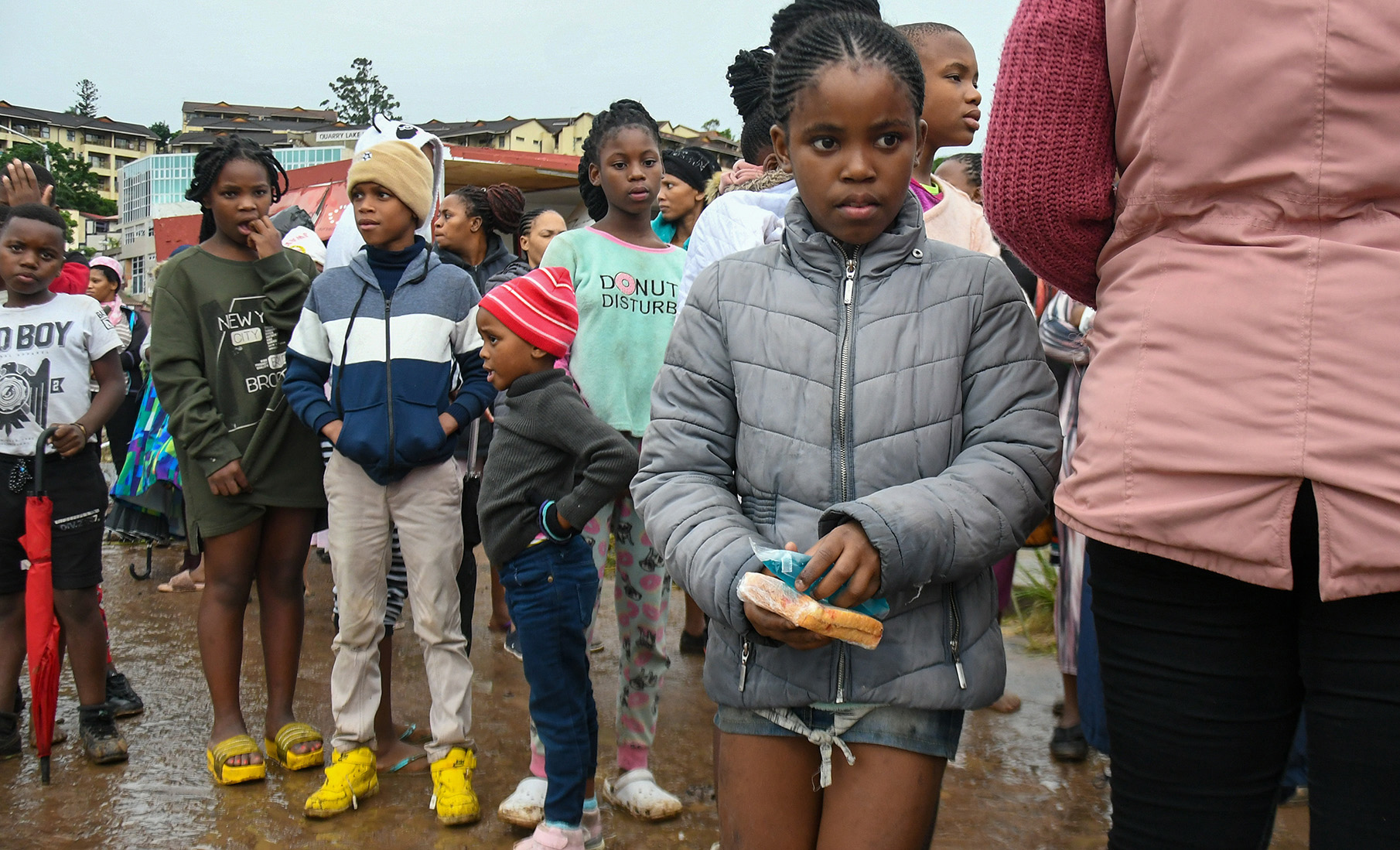
Children from the informal settlement between the M19 and Quarry Road in Durban line up for relief from the Food Aid Foundation on 12 April 2022. (Photo: Gallo Images / Darren Stewart)
The audit by the Auditor-General also addressed concerns about access to water and found that an old-age home on Plane Street in oThongathi with 75 households did not have water for 45 days, from 11 April to 25 May. Of those interviewed by SECTION27, 44% did not have sufficient food and water during the floods.
Looking forward
Floods in KwaZulu-Natal are not an unexpected occurrence, as can be remembered from 1987 when flooding caused extensive damage to roads, including the destruction of 14 bridges, as well as the displacement of 68,000 people and 388 deaths. Therefore, anticipation of such events is to be reasonably expected.
As such, the importance of proper warning systems has been noted in many reports, including the Presidential Climate Commission brief. SECTION27’s survey found that 60% of the participants received no warning of the floods, and 94% did not prepare in any way for the floods. Among the reasons cited for the lack of warning were rolling blackouts, which resulted in alerts not being received.
The consequences of the floods only serve to highlight the frailty of eThekwini communities, and while the local government responded to residents’ immediate needs, this response was uneven and, in some cases, inadequate.
It has been said that South Africa “lacks collective memory about disasters since it doesn’t have a reliable disaster loss and damage database”. This needs to change; we need to remember.
“I will never forget 11 April 2022,” said Mabaso, one of SECTION27’s interviewees.
We hope the government won’t either. DM/MC
Isabella Potenza worked as an intern in the Environment and Climate Justice Programme at SECTION27.




















Comments - Please login in order to comment.